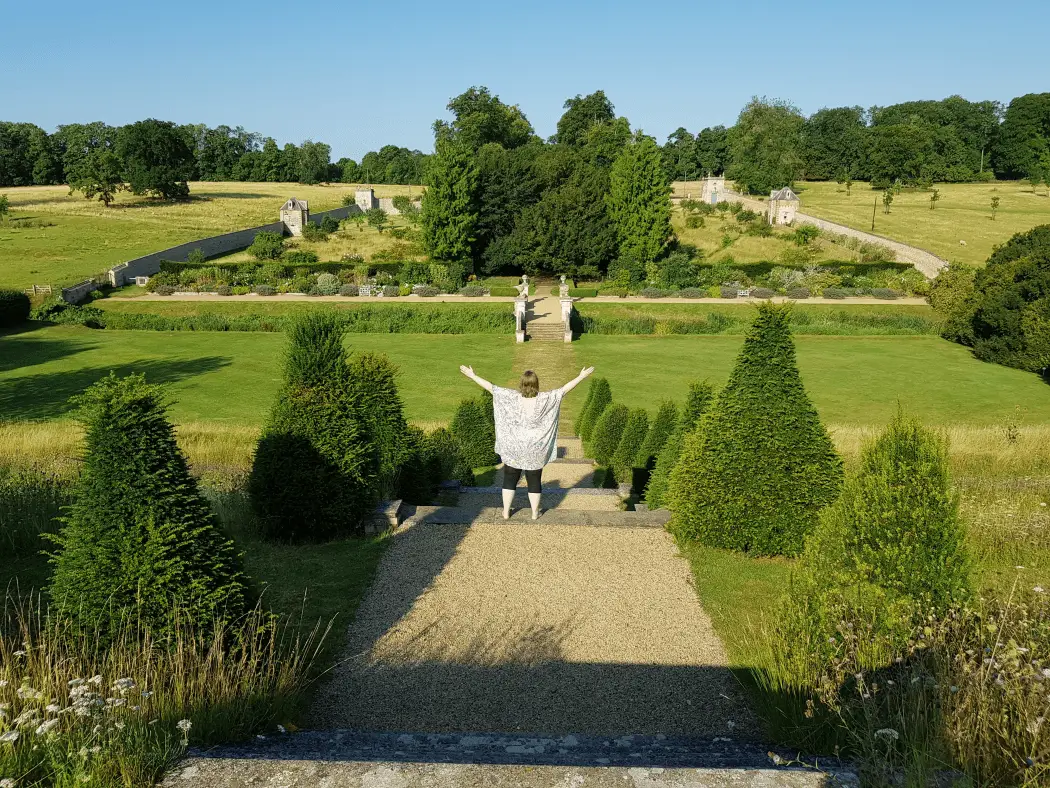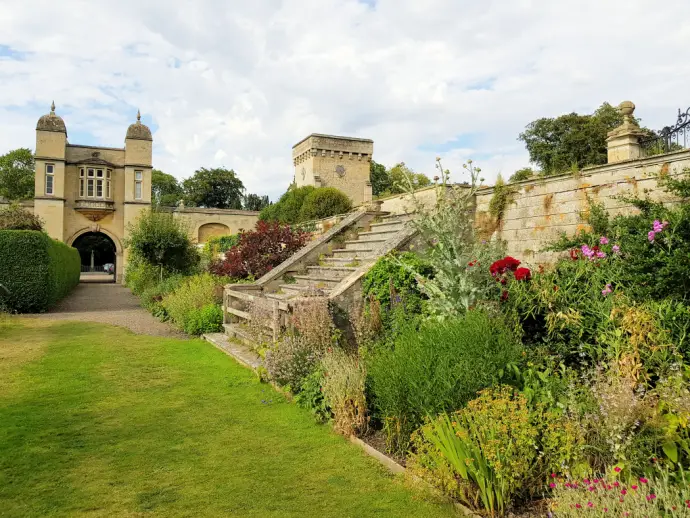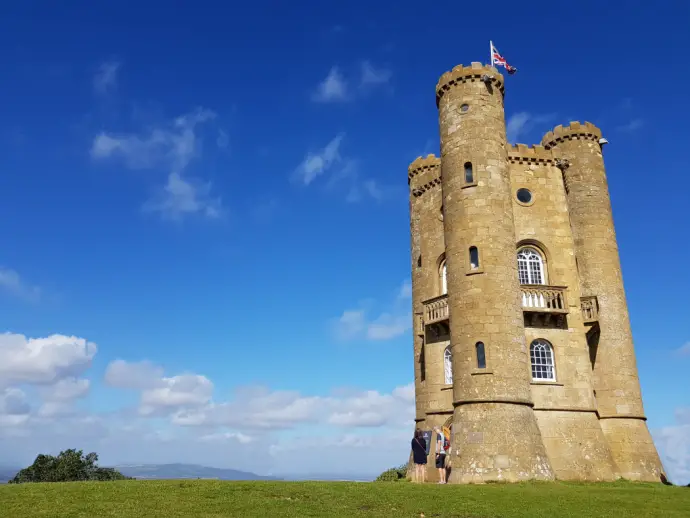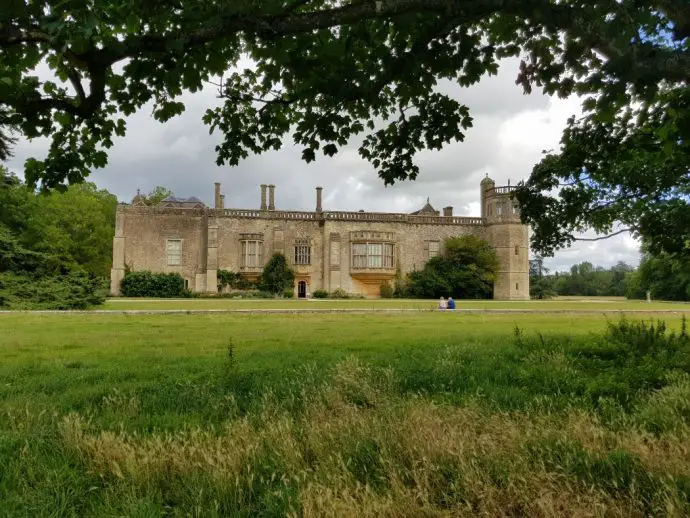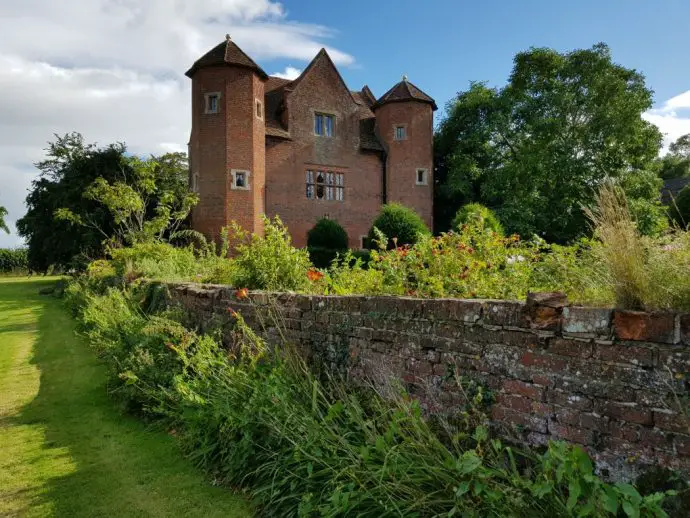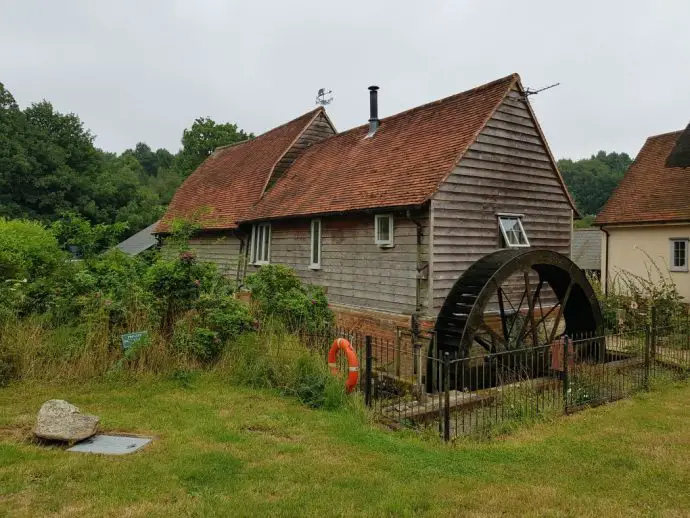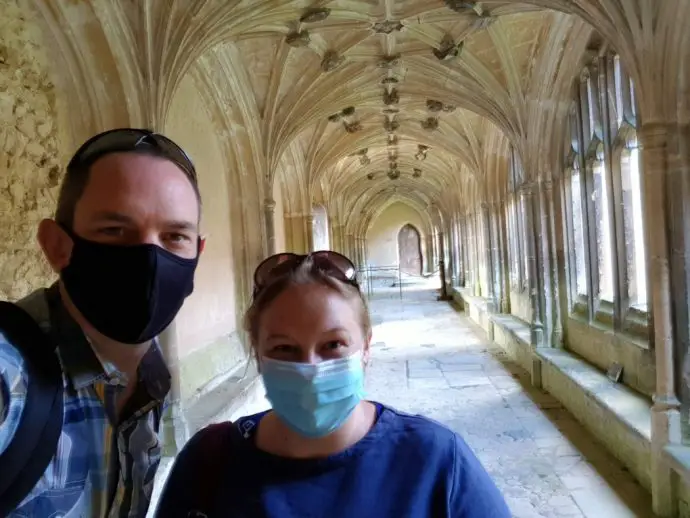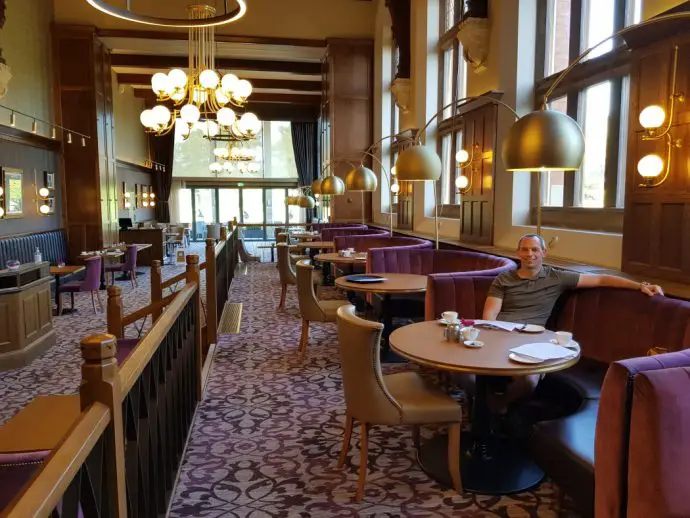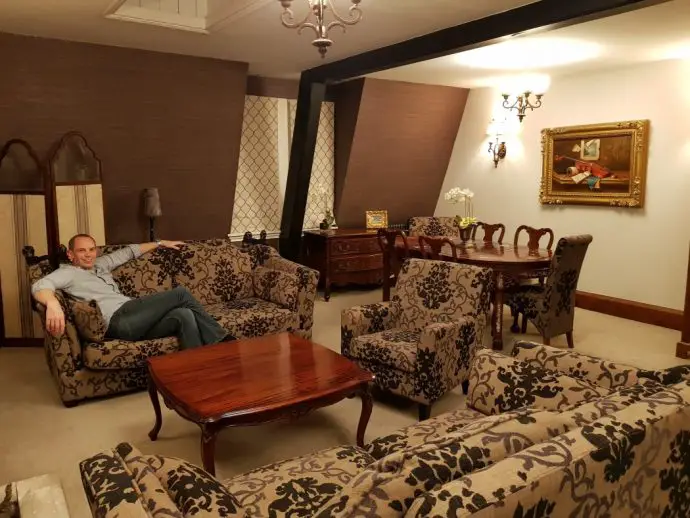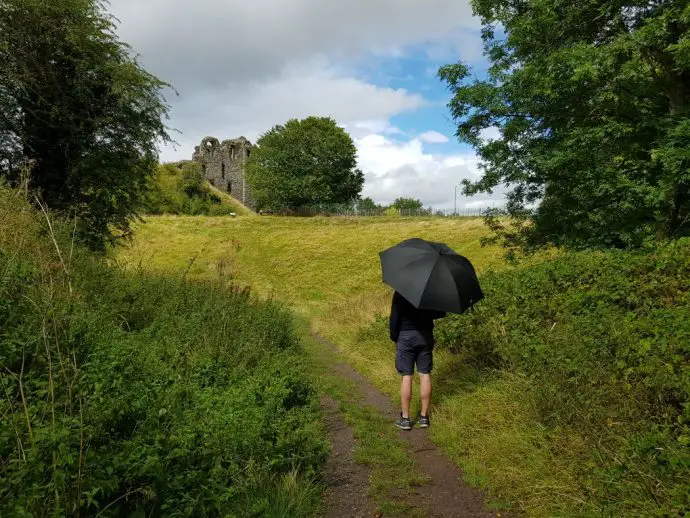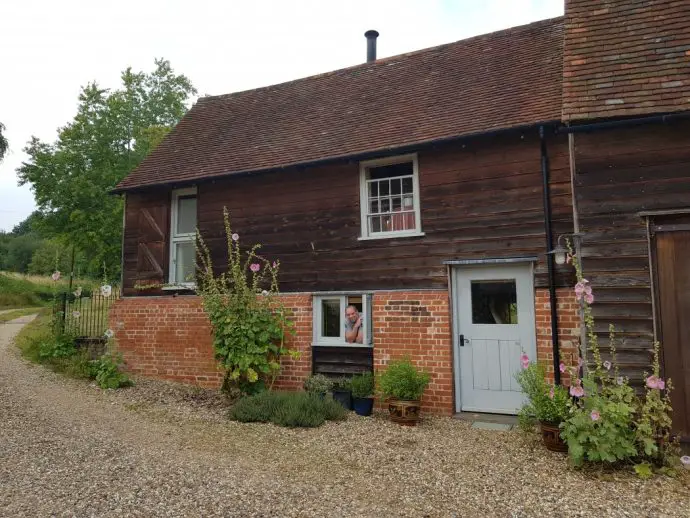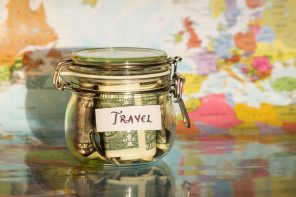It’s August 2020, Covid-19 is still rife around the world, and we’ve just returned from a 2-week road trip around the UK – our first venture beyond the county boundaries since March. We wanted to test the waters, and see what it is like to travel in England during the Coronavirus pandemic. Would the experience be vastly different from usual?
Here’s what we discovered…
What is it like to travel in England during Covid-19?
Our trip took us through 20 counties, staying at 5 different accommodation venues, with a mixture of hotels and self catering properties. We ate out, visited several attractions and went for countryside walks. All elements of a great UK staycation, just with a few changes to the norm.
1. Pre-Booking is the Order of the Day
In order to welcome the public back through their doors, most attractions are now operating a pre-booking system where time slots are allocated to manage visitor flow. One the whole it seems to be working, and at those sites using this method we never felt it was overcrowded.
The downside of this is that it removes all spontaneity from a trip, and you have to play Devil’s Advocate with the great British weather! Towards the beginning of our trip we’d booked to visit Broadway Tower in the Cotswolds, but our chosen day was stormy with 24 hours of horizontal rain. We did attempt the outing, but on arrival decided it would be a waste of time and we’d see nothing in that sort of weather, so we returned again the next time when the sun was shining.
The same is true when it comes to dining out.
We found it almost impossible to eat at a restaurant without a reservation, which meant we had to plan well ahead. I should note that we travelled during August when the ‘Eat out to Help out’ scheme was running, so it may have been busier than normal. Most of the time this was absolutely fine, but on a couple of occasions we cancelled our bookings because our plans had changed or we just didn’t feel like a big meal. It felt like we were planning our whole trip around dinners, so in the end we ended up mostly eating at our hotel (with a reservation) or self catering as this was far less hassle.
Another issue with pre-booking is parking. Some sites have separate pay and display car parks which can’t be pre-booked, so if you have an online reservation for an attraction that only has a small parking area, you risk turning up and finding no spaces available.
Top Tips
- Be prepared to potentially lose money on unused attraction tickets if you change your plans.
- Keep an eye on attraction websites to monitor ticket sales (most show you how many tickets are remaining for a particular day and time slot), and buy at the last minute rather than well in advance.
- Go for late afternoon slots as these seemed much quieter than during the morning and over lunch time.
- If you do end up cancelling a restaurant reservation, do let them know so they can release your table to others.
2. Paying Full Price for Half the Experience
Understandably indoor areas at most attractions are not yet open to the public, but many are still charging full price for entry. We did feel a little cheated at paying full whack for half the experience on some occasions, and although we appreciate that these places need to make up for severely depleted revenue this year, many of us have lost jobs and income too, and coming away from a visit feeling short changed doesn’t encourage us to continue in the same vein. Indeed, towards the end of our trip we instead focused mainly on the free sites that required no booking or cost.
Most attractions had their one-way systems well established and they seemed to work well, but we thought that there were some places that could have quite easily have opened up their indoor spaces using the same protocol. Everyone is obviously still learning about what works and what doesn’t in these unusual times, and hopefully this will all improve in the future.
Top Tips
- Attraction entry rules are changing almost weekly, so do keep an eye on websites to see how much of the site is open.
- English Heritage have a lot of amazing ruins like castles and abbeys to visit for free (and without needing to book).
3. Not Everywhere is Open
There are still some visitor attractions that aren’t yet open at all, and many have already decided to remain closed to the public until 2021. On a holiday in your own country this isn’t such an issue, as there’s no real pressure to tick everything you possibly can off the list. After all you can always return. Yet if you’re travelling abroad the chances are you won’t be returning to the same destination, which means that to really feel you’ve had true value from your trip, you need to see as much as possible, especially the main sights.
It’s mainly because of this that we’ve decided not to travel abroad this year. In most instances prices for foreign holidays haven’t been lowered, so to have a lesser experience at the same (or higher!) cost just doesn’t make sense to us.
Top Tips
- Do your research beforehand to avoid disappointment. We were planning a trip to the Scottish Borders this Autumn but having realised most of the historical landmarks we wanted to visit won’t reopen until next year, we’ve postponed that for another time.
4. Learn to Trust your Hosts
You have two choices when you go away on holiday during the pandemic:
- Be paranoid, don’t touch anything, and feel uncomfortable the whole time
- Trust in your hosts, believe that they’ll have done a thorough cleaning job, and relax
I went away expecting to be a bit obsessive about what I touched, and half wondered whether to take my own cleaning stuff with me, just for peace of mind (I didn’t in the end). But in reality, the whole experience was far less stressful than anticipated, even at hotels with lots of people around. Staying in slightly ‘higher-end’ establishments we felt confident that the housekeeping team were on top of it all, and indeed sticky surfaces indicated the constant use of cleaning products.
So, we chose option two and as a result, had a really relaxing trip, and didn’t feel worried at all whilst staying away from home. We suggest you do the same.
5. Inconsistent Measures are Confusing
Each establishment decides, to an extent, what measures they wish to implement on their premises.
Some had track and trace, others didn’t. There were restaurants where staff all wore face coverings, in others they didn’t. We had been told in advance that we’d have our temperatures checked on arrival at hotels, but in reality only one did that (it’s a bit nerve wracking waiting for the result to find out whether you can actually stay at the place you’ve just paid a lot of money for!).
After 2 weeks on the road, all these measures really felt like the norm, and didn’t really detract from the stay.
Top Tips
- Learn to just go with the flow. There will be clear instructions everywhere you go, so just read these and act accordingly.
6. An Insular Experience
The use of face coverings was the only aspect that really detracted from the holiday experience, as it meant not being able to communicate meaningfully or socially with people we met. Smiling is a big part of communicating, and having this removed from our social arsenal was pretty frustrating at times.
We’ve learnt to smile with our eyes, but that was pretty much the only facial expression left available, so it leaves interactions feeling rather flat. We found ourselves over-exaggerating other movements, like laughing or nodding to compensate, no doubt leaving our acquaintances a little bemused.
Top Tips
- Be like the Italians and embrace the use of hand gestures to accompany your words, it really does make a difference.
7. Distancing Makes for an Enjoyable Experience
Some aspects of this whole situation actually made for a much more enjoyable experience, for me at least! I hate crowded restaurants with a passion, and will never sit somewhere that doesn’t have a clear access to the door (yeah, I know, just one of my quirks) or where diners are crammed in almost on top of each other.
But dining with socially distanced tables is AMAZING, and the meals I had on this trip were probably the most enjoyable ones that I’ve had in years as a result. At Stanbrook Abbey Hotel they even went one step further and gave guests a dedicated table for their entire stay which we thought was superb.
Personal space is important, even at the best of times!
8. Slow but Genuine Service
Service in cafes and restaurants was quite understandably a lot slower, as staff get used to the extra measures they have to adhere to, with everything taking just a little bit longer than usual. Plus many places still don’t have their full team back at work as they test the water, so often they are short staffed.
Yet with all this comes a bit more of a personal connection, a shared experience where everyone is in the same boat which ignites a touch of good old fashioned camaraderie. We’ve chatted to more serving staff than ever before, and to hear their own stories and how many of them had just returned to work after a long time off made what is so often a stale interaction, more genuine.
Top Tips
- Be patient. Things are going to take longer with fewer staff members and added levels of precaution.
9. There Will Always be some Ignorant People
The only times we ever felt ‘unsafe’ during our trip was walking down the streets of crowded Cotswold ‘honeypot’ villages, and during a walk in the Malverns. On these occasions, there were people who had clearly forgotten all about the pandemic, and were congregating on pavements and along the trails, with no regard for distancing. Many were inconsiderate and didn’t move out of the way to let us pass, and out on the hill some would walk so close we could hear them breathe. I have to say, it was mainly the younger ‘invincible’ generations who were guilty of this.

By sticking to out of the way little visited sights we avoided the crowds – Hopton Castle in Shropshire
It was in equal measures stressful and infuriating, so in the end we gave up on several of the places we wanted to visit, and instead concentrated on even more rural and remote areas with far fewer visitors. There will always be ignorant people who make things uncomfortable for the rest of us. Shame on them.
Top Tips
- It goes without saying that you should avoid crowded places, but even out in the hills which we thought would be a safe bet, we encountered idiots. Try and pick really unusual, out of the way spots that require a bit of effort to visit, like ruined abbeys and castles. We had most of these sort of sites all to ourselves.
10. Fewer Overnight Residents Means This is a Great Time to Travel
Many people are still not comfortable staying away, which is great news for those who do venture out overnight as it means space, choice and the potential for upgrades.
At Stanbrook Abbey Hotel we were pretty much the only guests (we think there were only two other rooms being used out of a possible 70!), and it felt like we had the entire place exclusively to ourselves. We also got upgraded to the top suite and were treated like real VIPS. Our stay was so much more fabulous because of all of this, and thus better than it would have been during ‘normal’ times.
Top Tips
- Pick a hotel that caters for a slightly ‘older’ crowd, who might be more hesitant to travel just yet, and you may just have an experience similar to ours.
- Stay mid-week if you can since weekends are starting to become busier again as people return to work.
11. The Weather really does Stop Play
I know as Brits we’re always harping on about the weather. It’s a birth-right of anyone in the UK, and for good reason. It’s so flipping unpredictable which makes planning days out a nightmare. Of course at the moment, open outdoor spaces are the best places to be when you’re away from home, which is fine if it’s sunny.
Yet add a few rainstorms and the trip can suddenly turn into quite a miserable experience. We had 24 hours of solid, horizontal rain with little visibility, and as there were no indoor attractions open, we ended up doing lots of sitting in the car and our hotel room, feeling a bit dejected. It doesn’t always go to plan!
Top Tips
- Plan for a few rainy days when you might be stuck in your hotel room or self-catering accommodation. Download some films, take some games or do some baking if you’re in a cottage. You know, all those things you’re sick of doing over the last few months and have come away to escape!
12. Hotels v Self Catering
I really thought that self catering would be the way forward for the foreseeable future, and that I’d feel quite unsettled in the hotels that we stayed in given all the people who would be around, and all the touch points in the public areas. Yet surprisingly, we found the hotel experience just as relaxing as the cottages, and when we next go away I’d have no hesitation in choosing either.
Sure, in hotels there is an increased risk, but with the measures that were in place it felt no less safe than our self catering accommodation. Plus, all the extra cleaning going on in the hotels might make them even safer. The surfaces in one of our cottages were all super sticky, a clear sign that they’d been sprayed and anti-baced within an inch of their lives. Yet in another self-catering place there was evidence that it hadn’t been quite as thoroughly deep cleaned (to be fair it was an old building), which gave us slightly less confidence in the stay.
Top Tips
- If you’re still nervous about travelling, opting for self-catering can give a better peace of mind since you’ll be the only ones staying there. If you can, choose somewhere that looks like they really care for their guests (check out the reviews!), as places like these are more likely to have been thoroughly cleaned.
- If you want to try a hotel stay, opt for a larger place with plenty of rooms because the chances are, different guest groups will be rotated to avoid using the same bedroom on consecutive nights.
The Verdict on Travel during the Pandemic
On the whole, our experience travelling around England during the coronavirus pandemic was truly positive, and we’d do it again in a heartbeat. Closures, weather and idiots all put a slight dampener on things, but eating out for the first time in months, staying in some incredible places and being treated so well by the staff everywhere really made this trip worthwhile.
It’s important to realise that at the moment, it’s difficult to be spontaneous because many places need to be pre-booked, so if planning ahead isn’t your usual travel style, try and get into that frame of mind before you leave.
To combat the frustration of not being able to visit everywhere we would have liked, we decided that the aim of this trip was simply to relax and enjoy time away from home rather than trying to do lots of activities or visits. As a result, since our expectations were fairly low, we had a fabulous time. It would be a different story had it been a trip abroad, but we’re saving that for next year. Hopefully.

